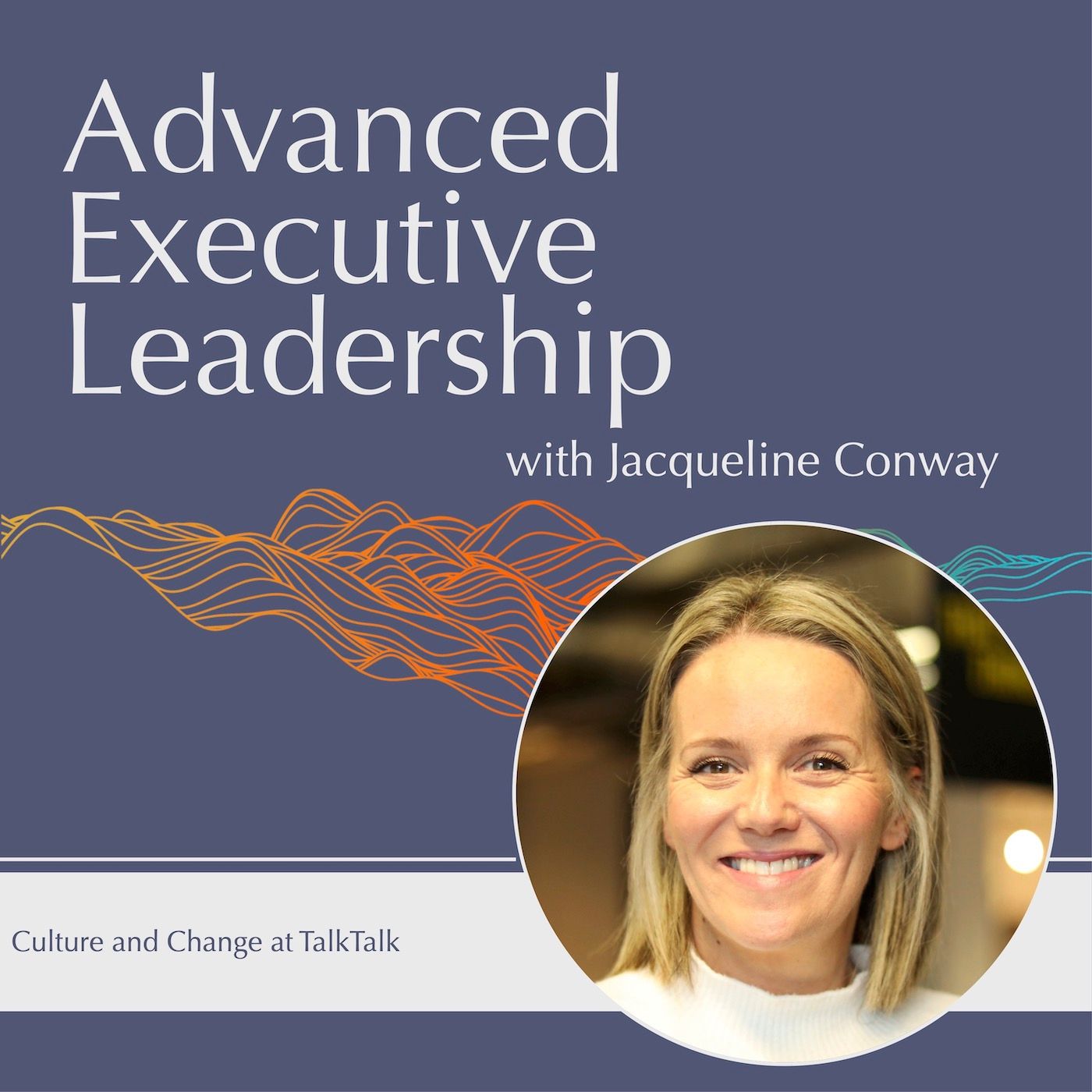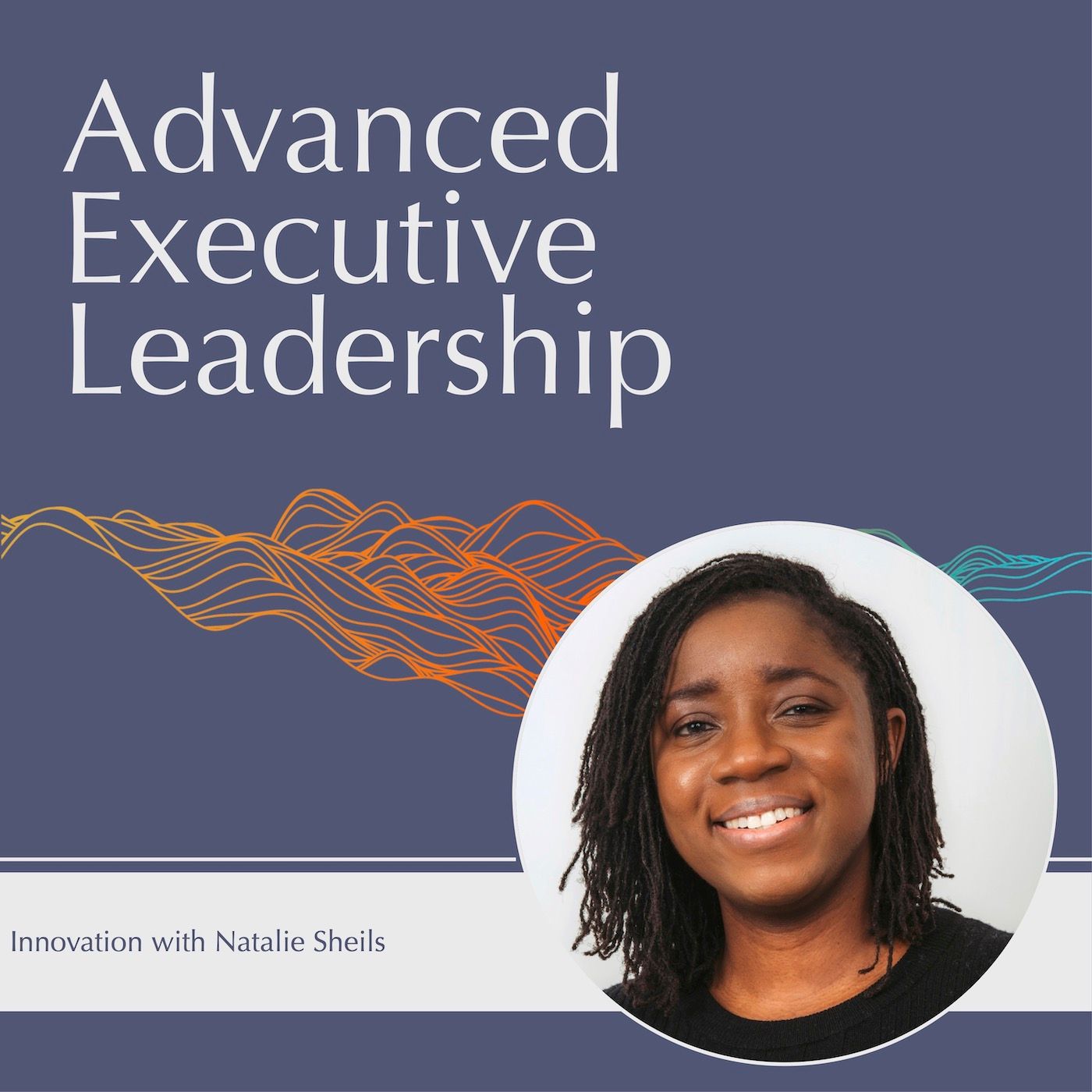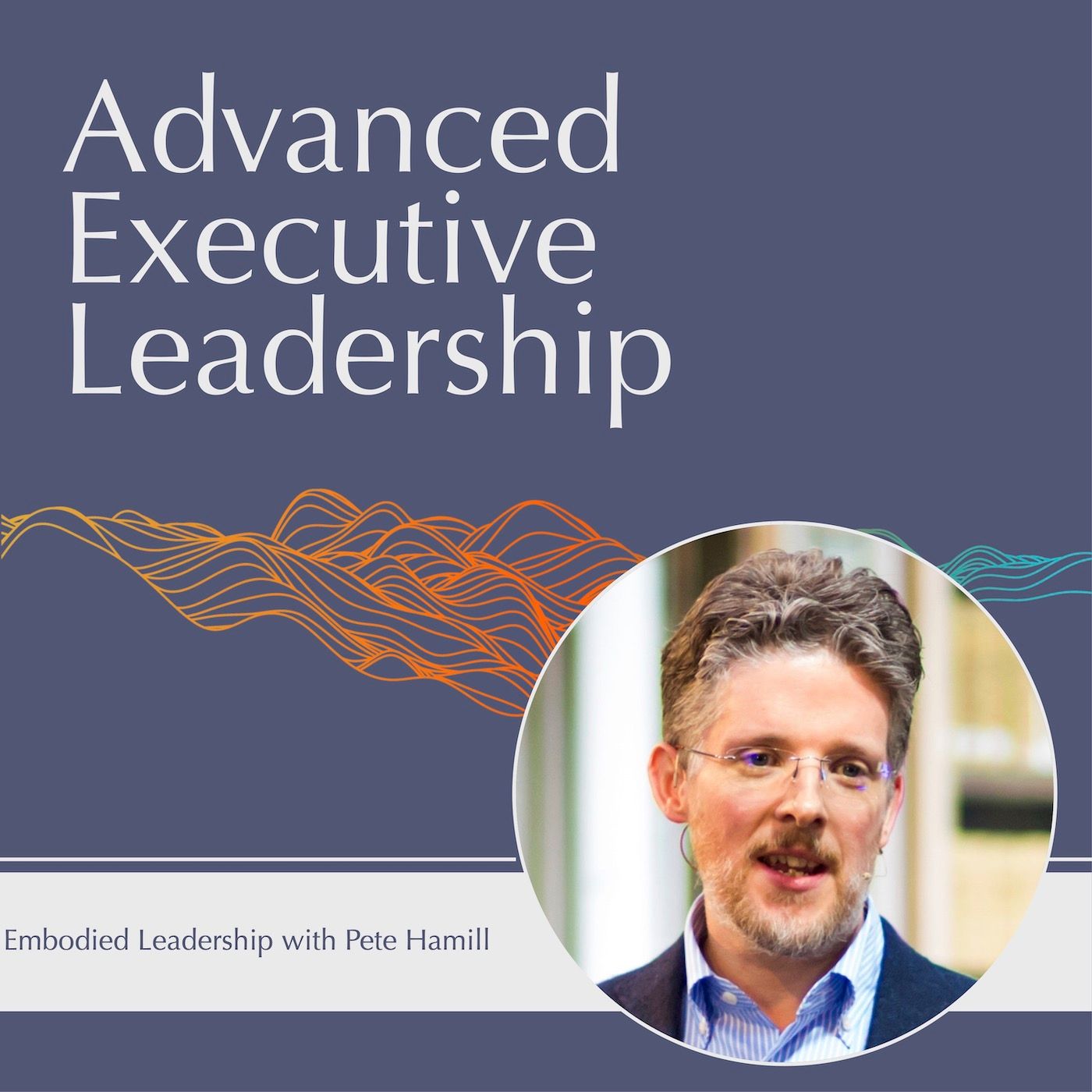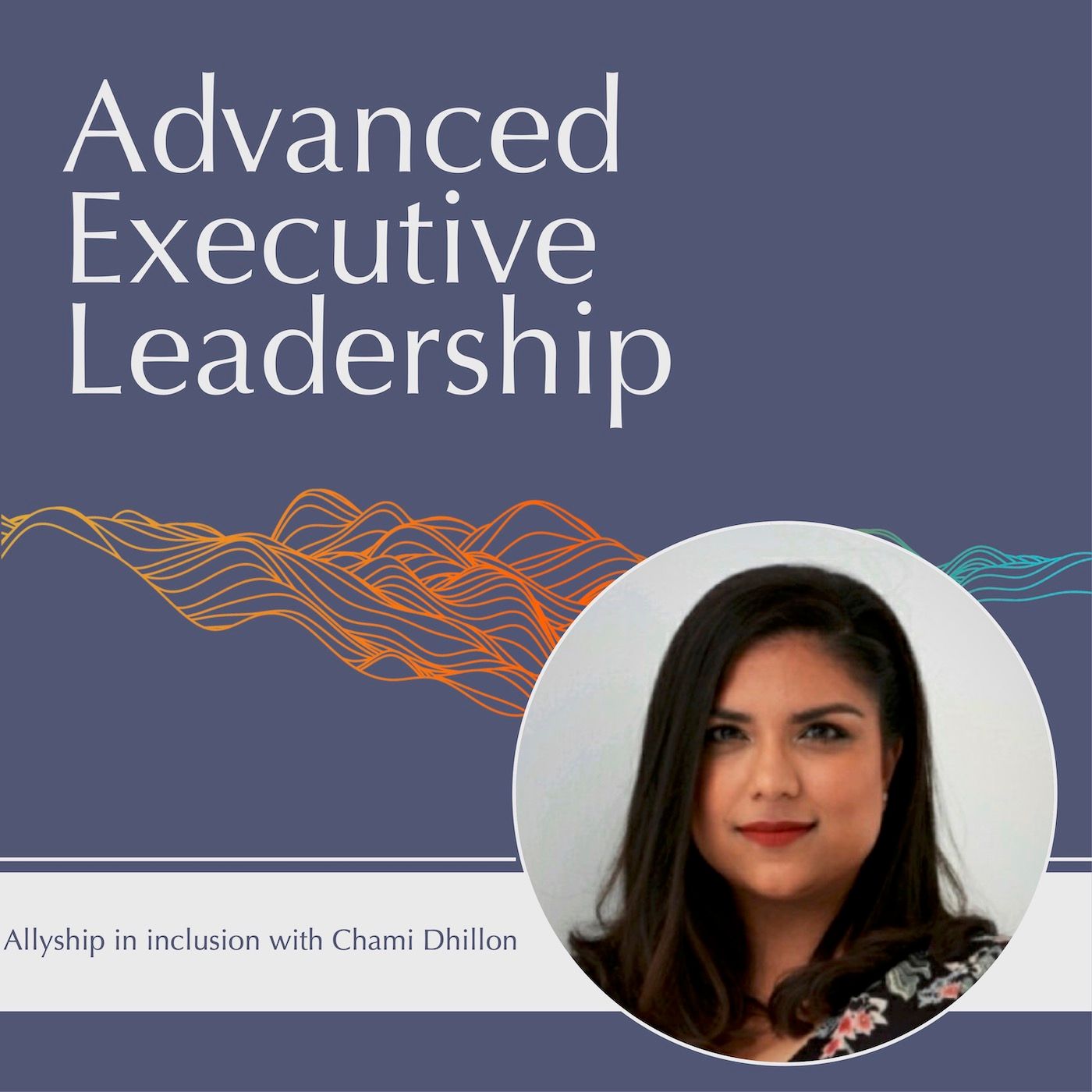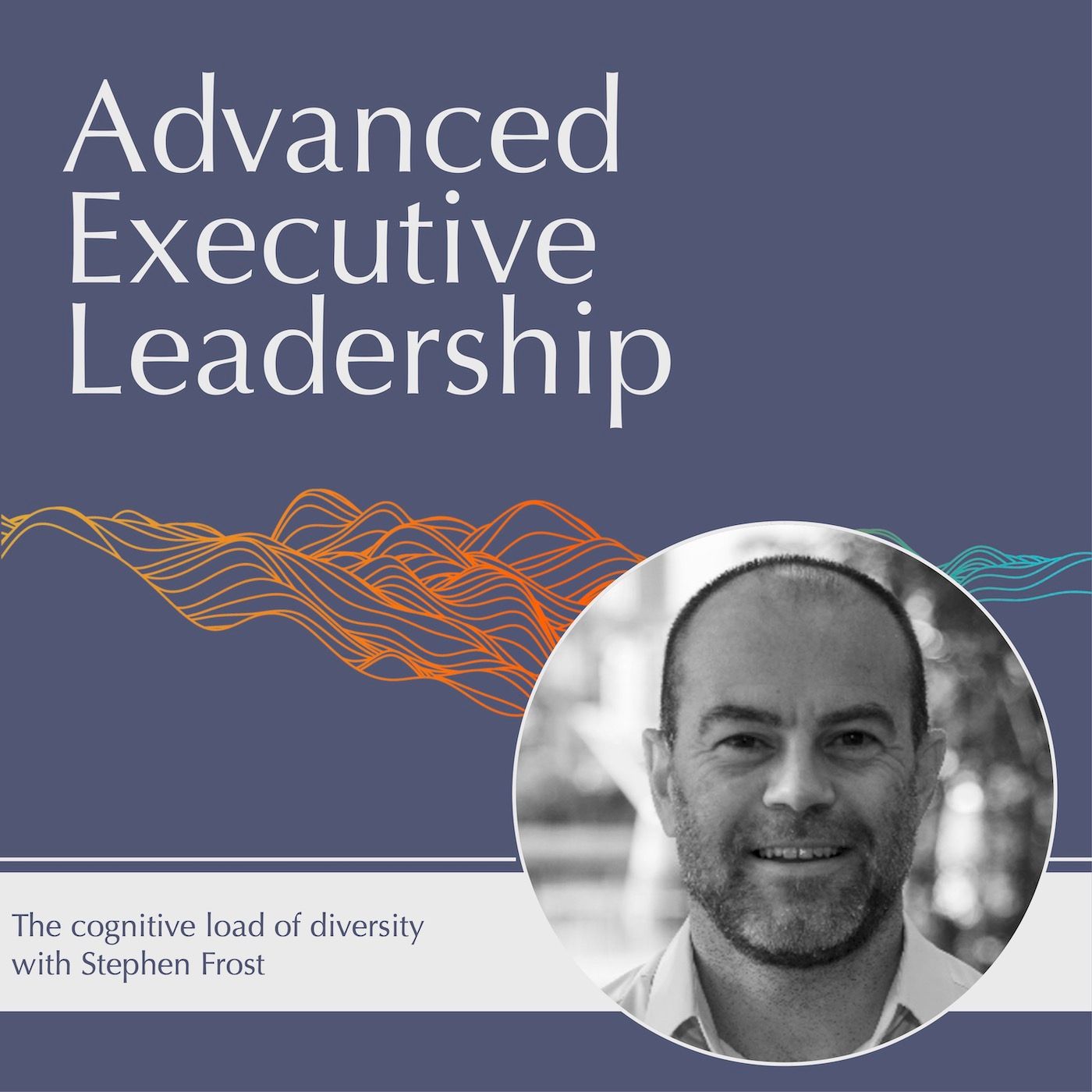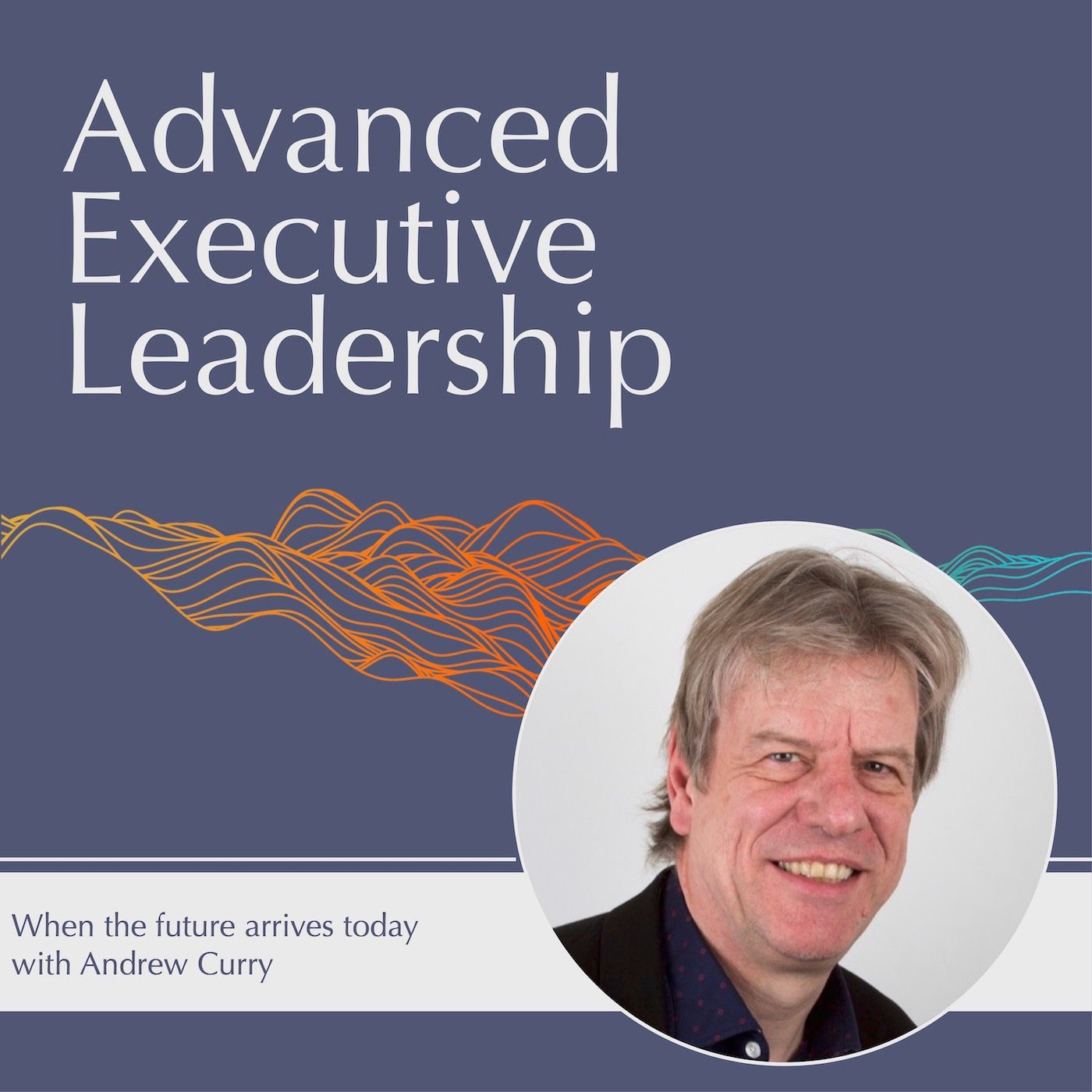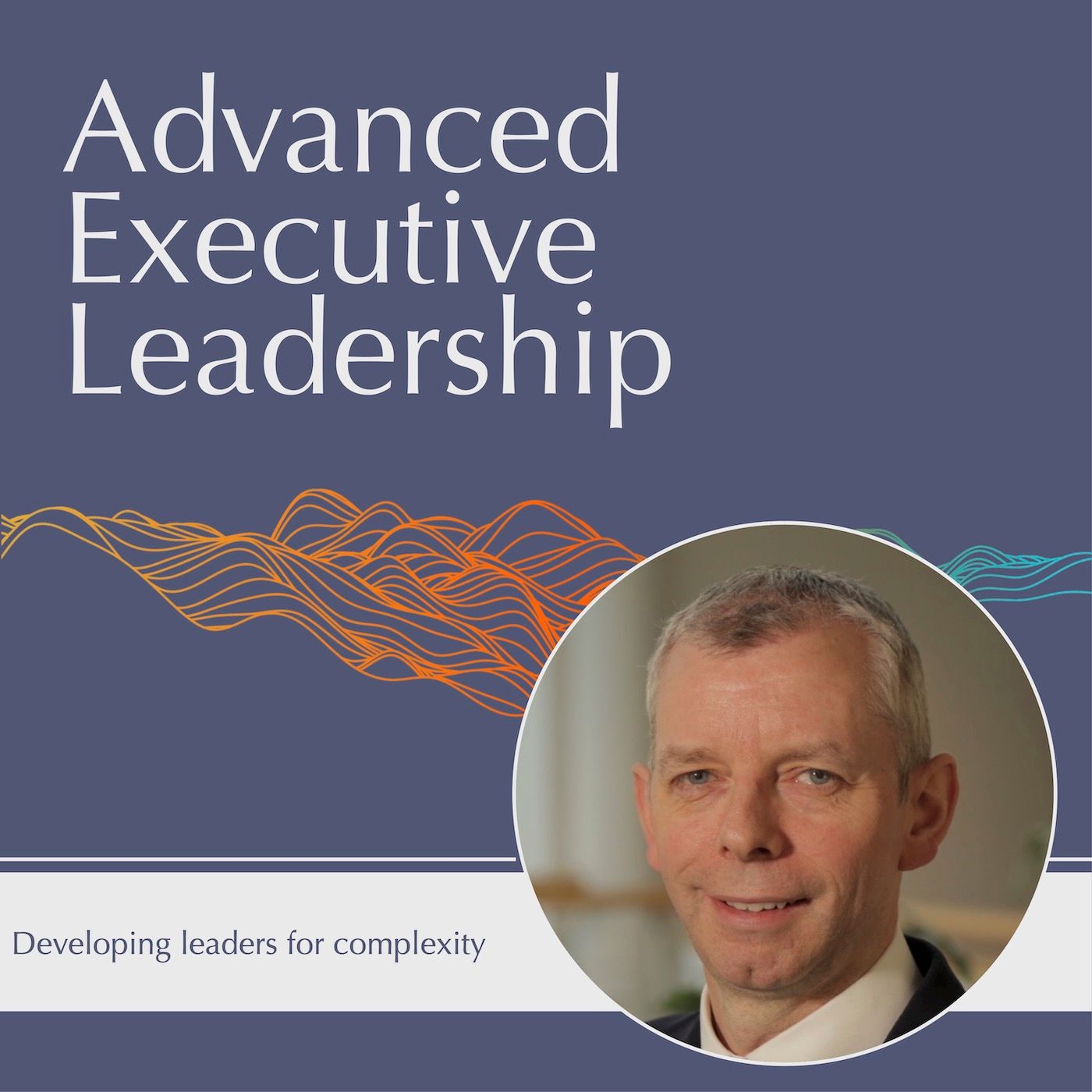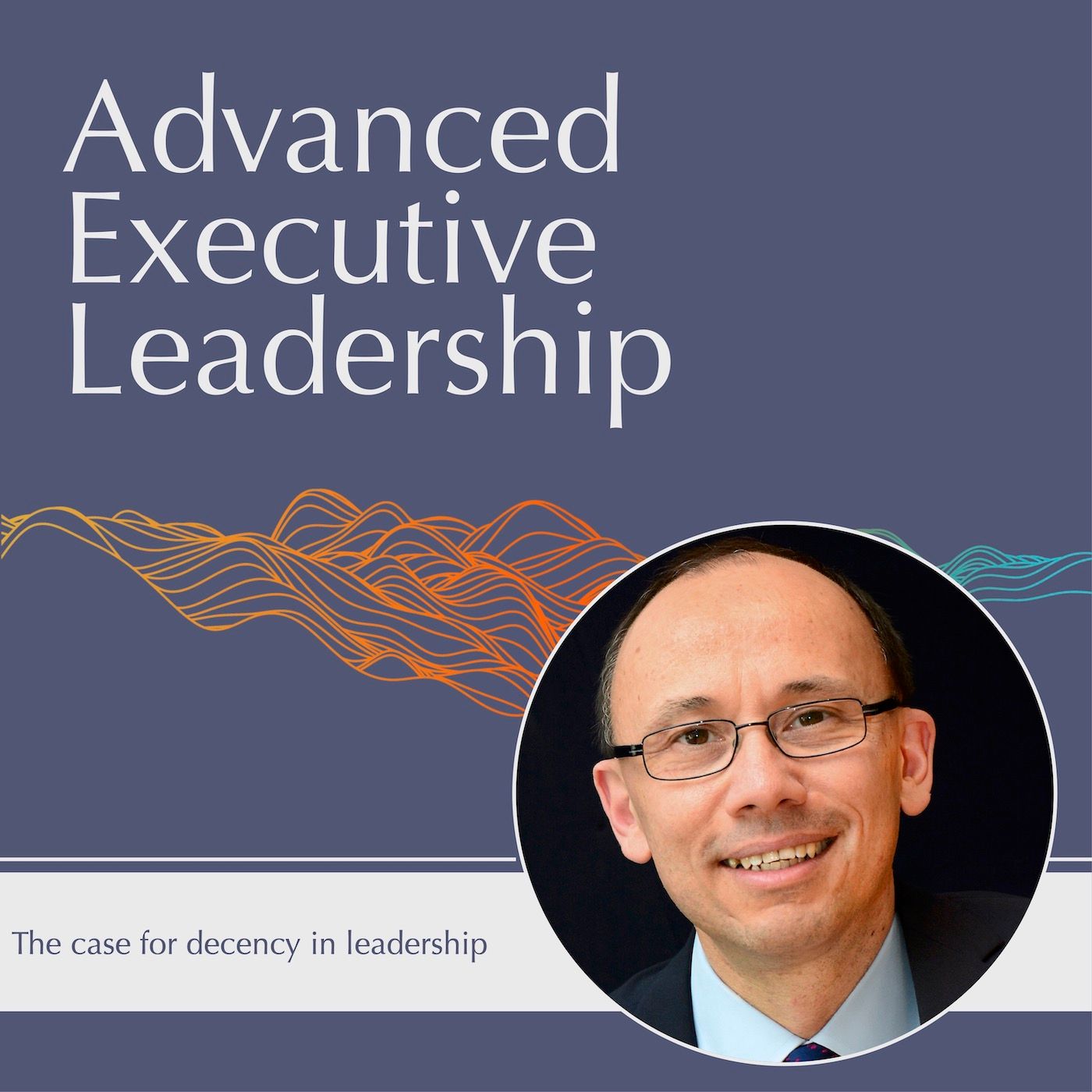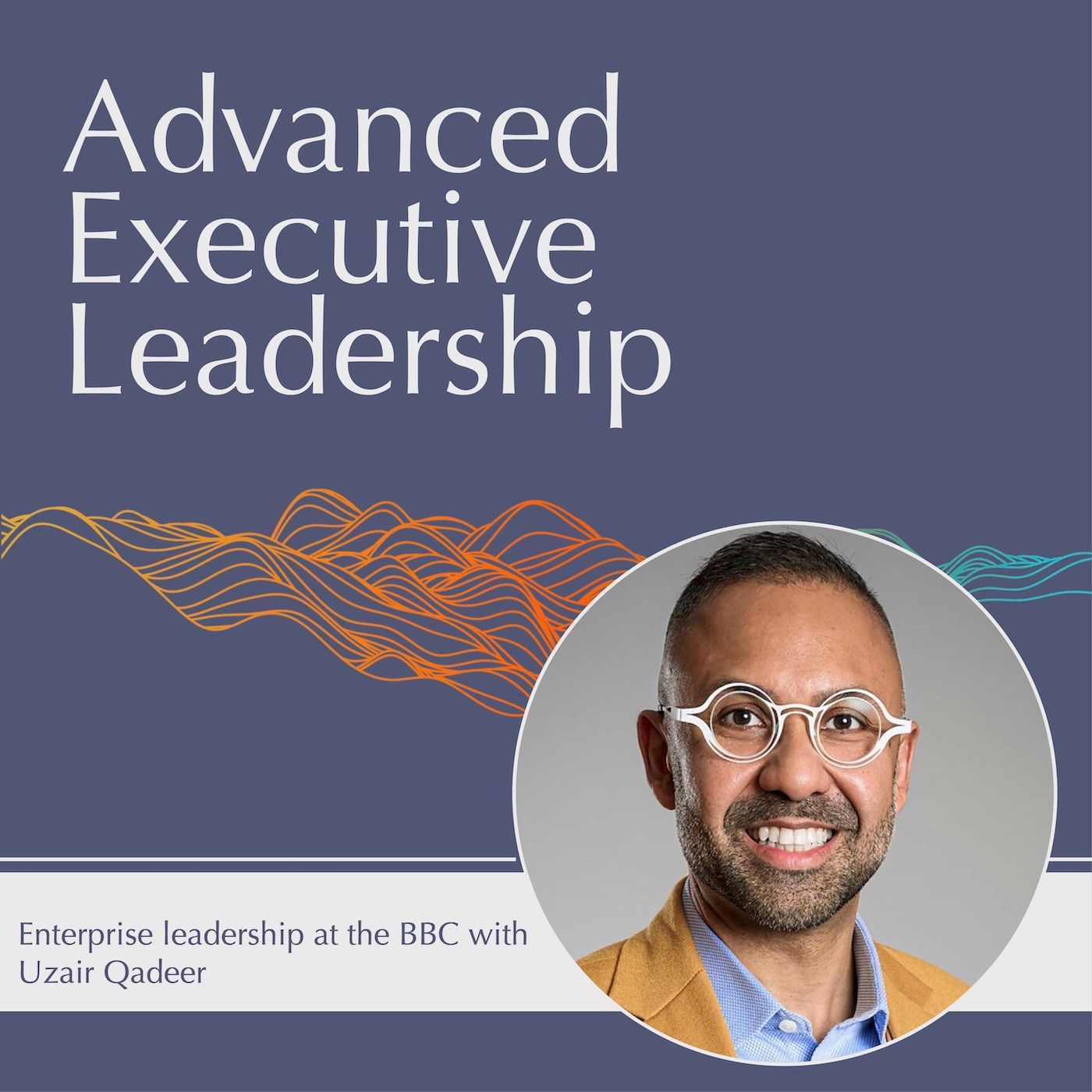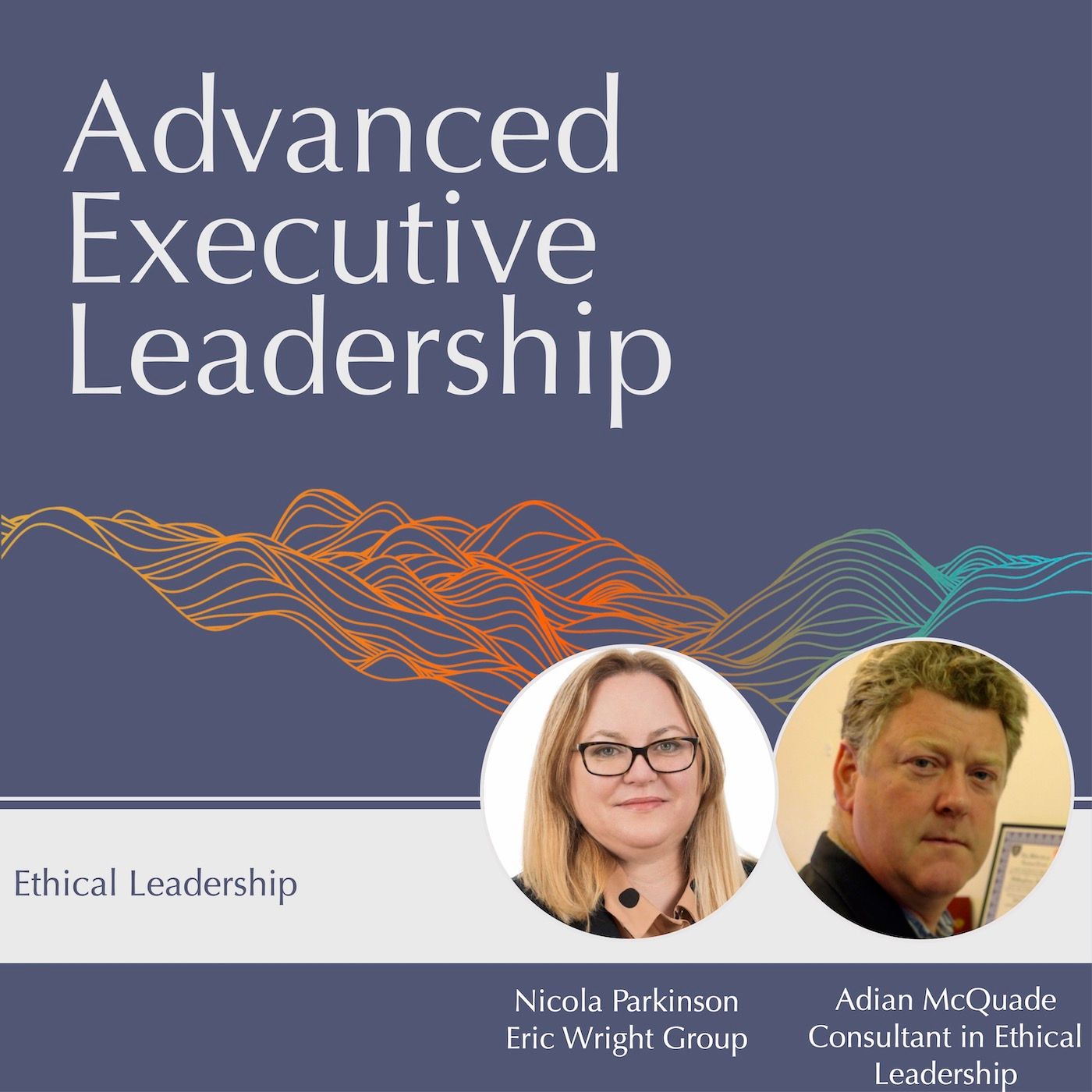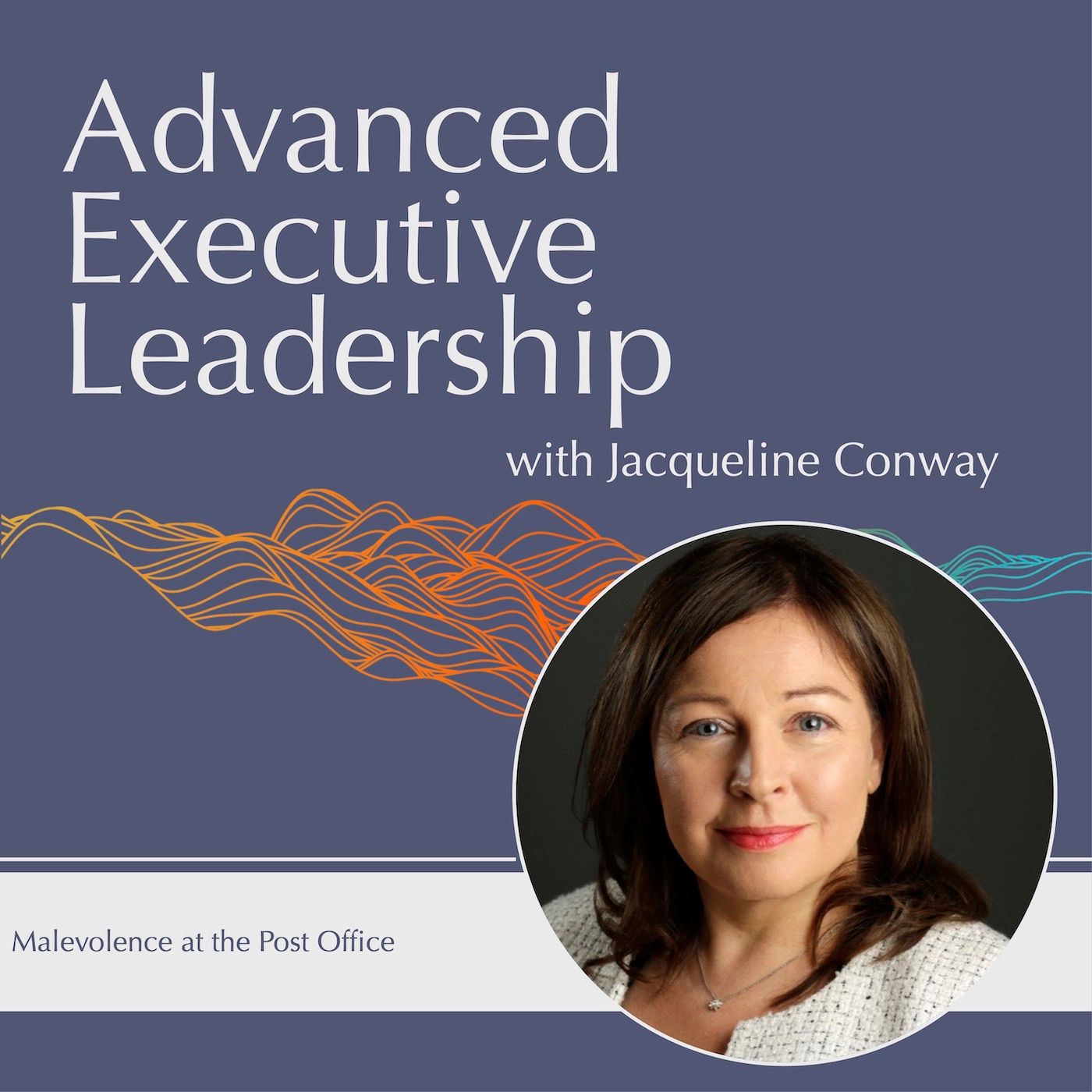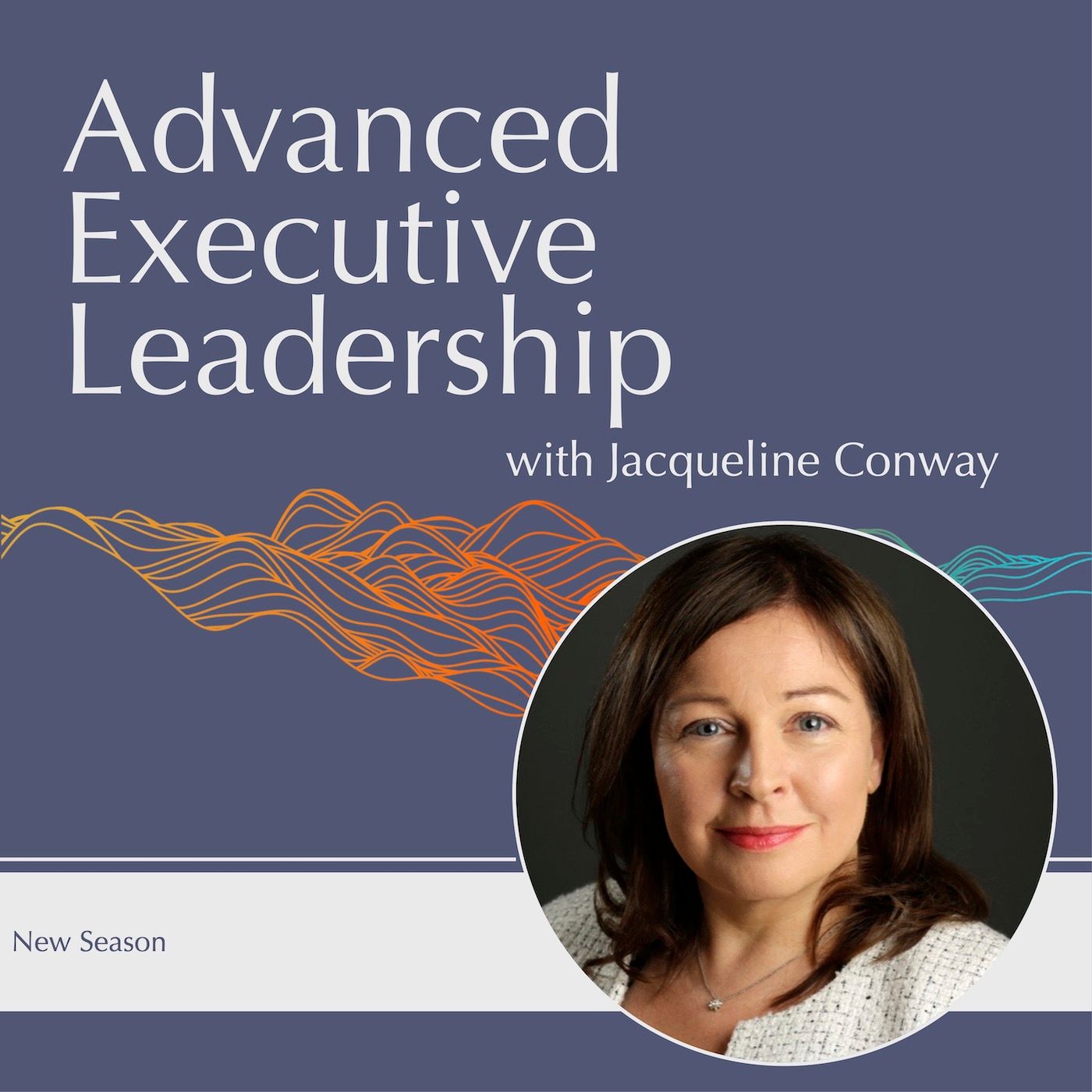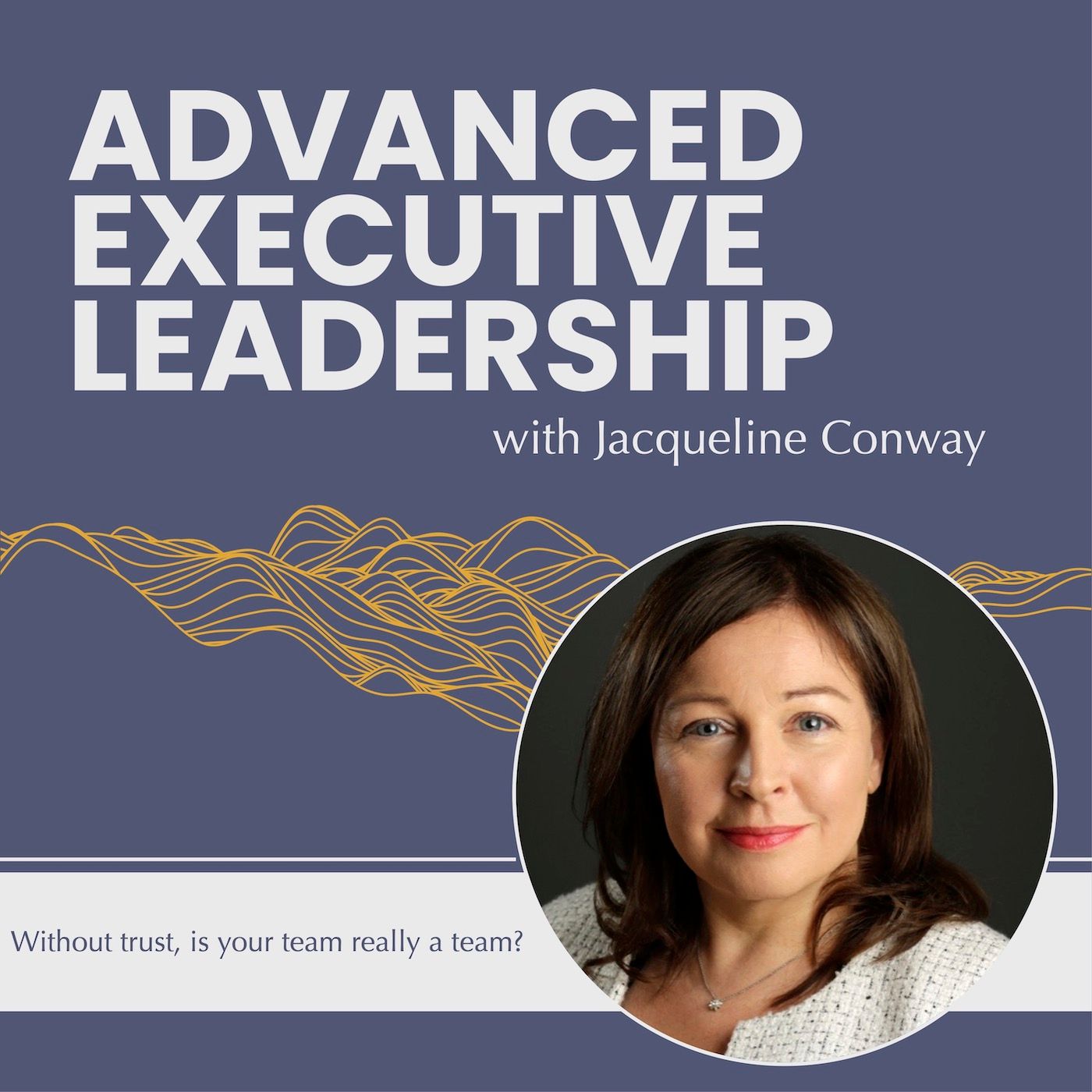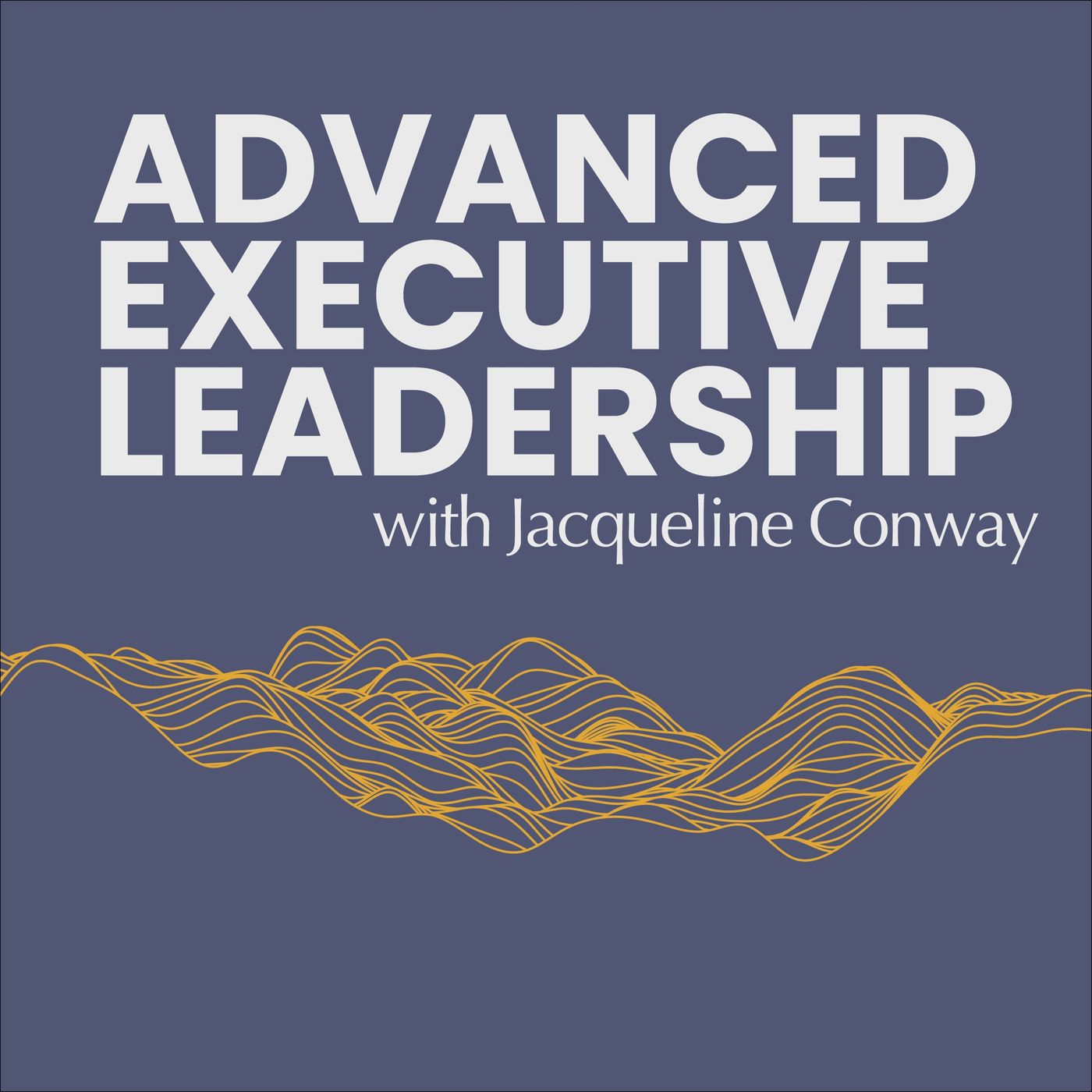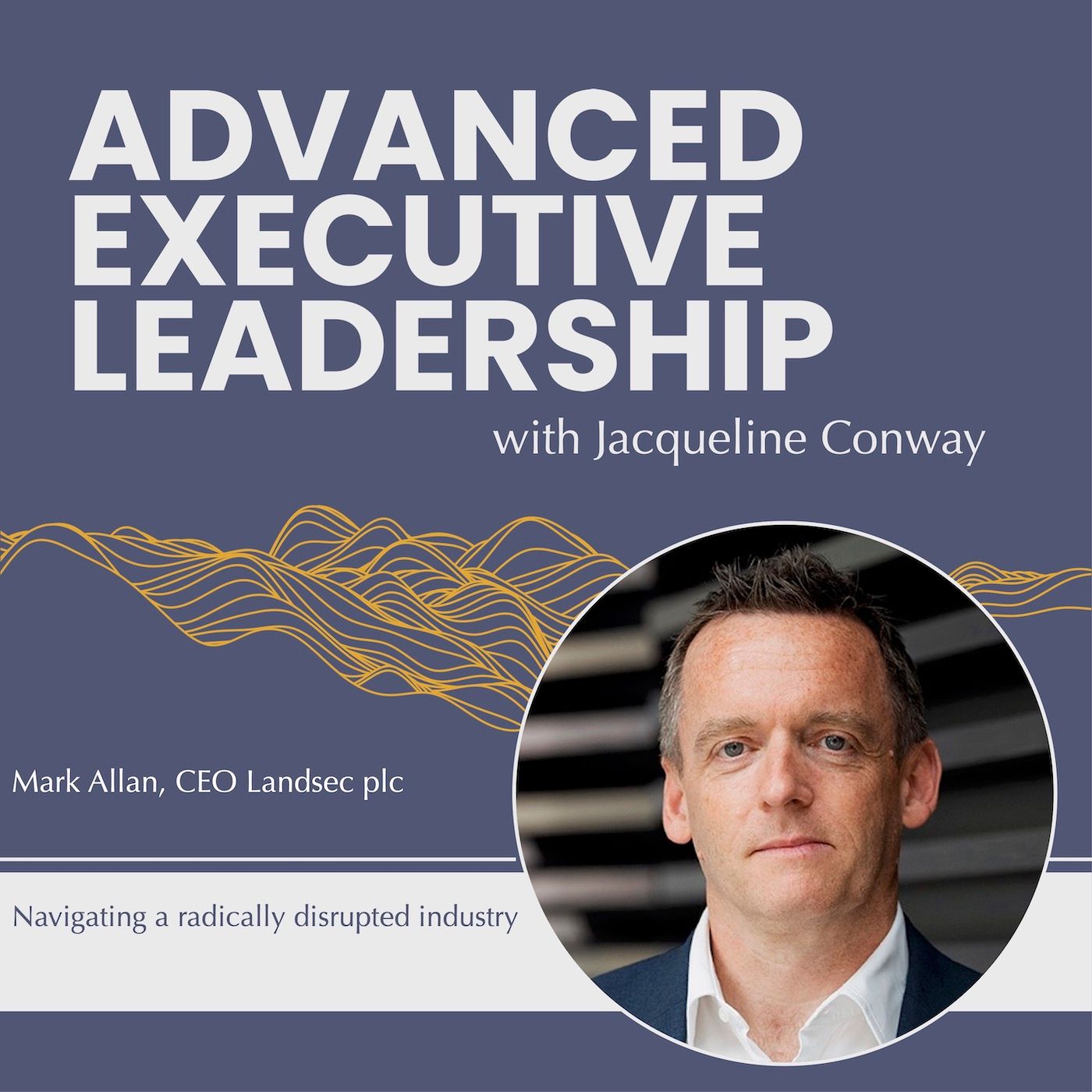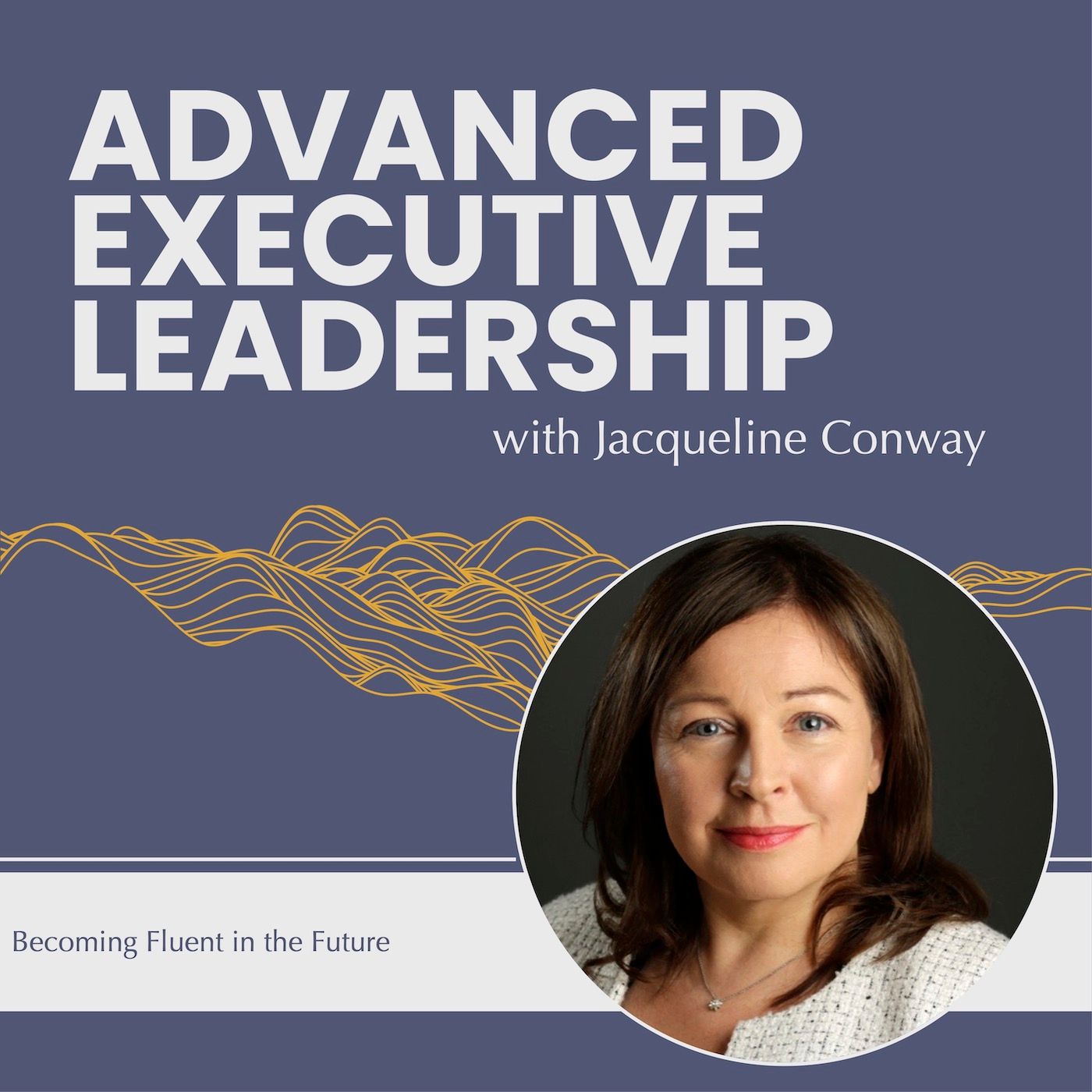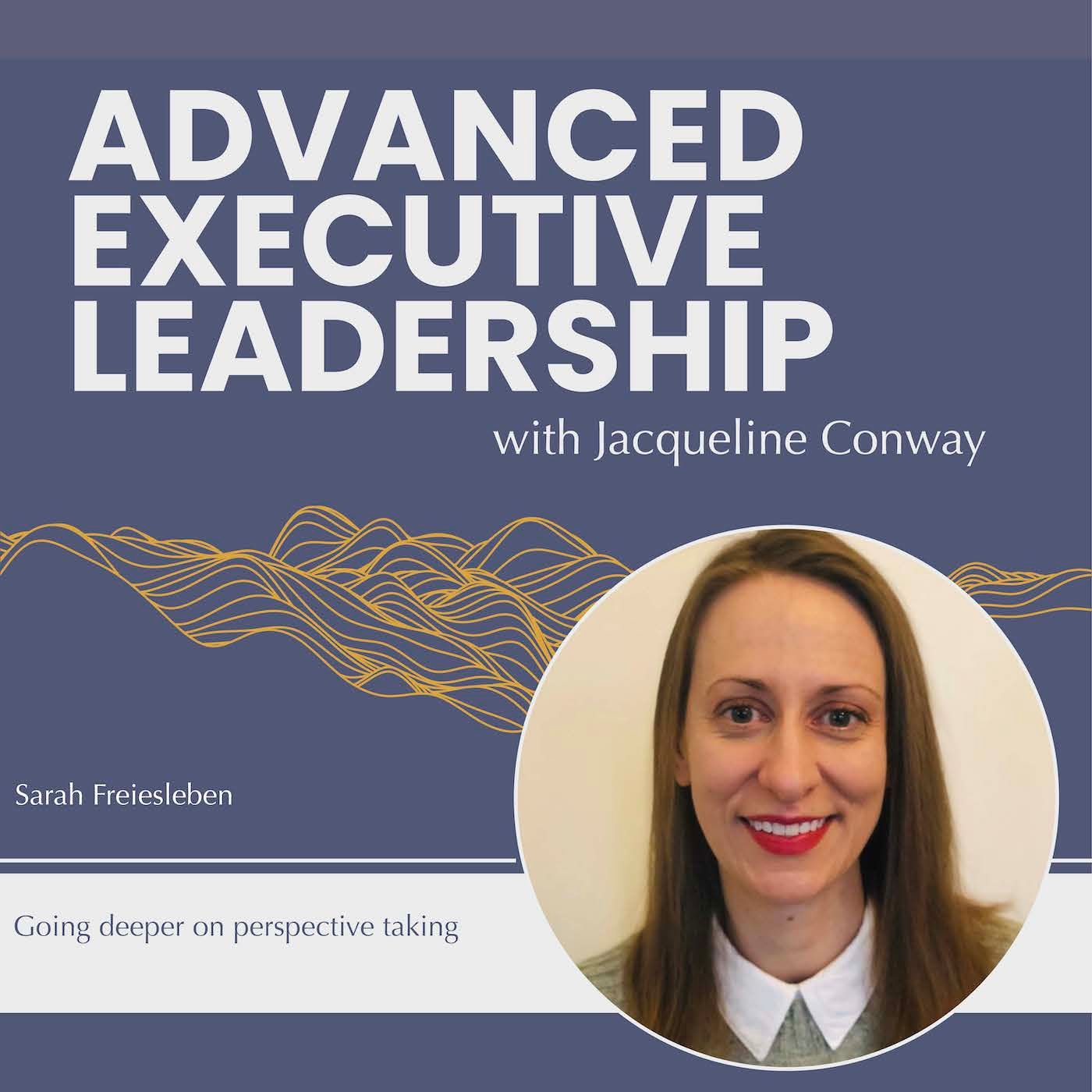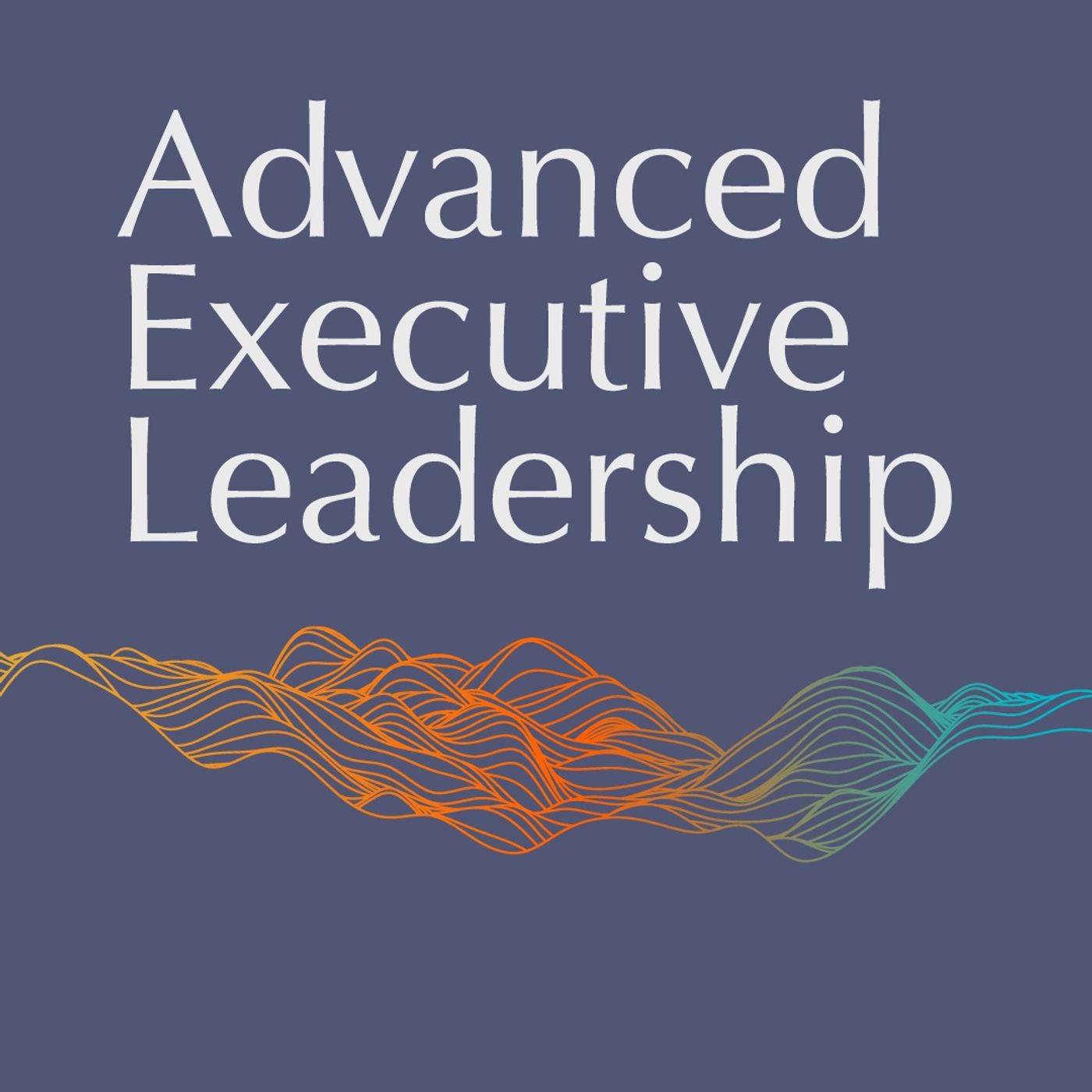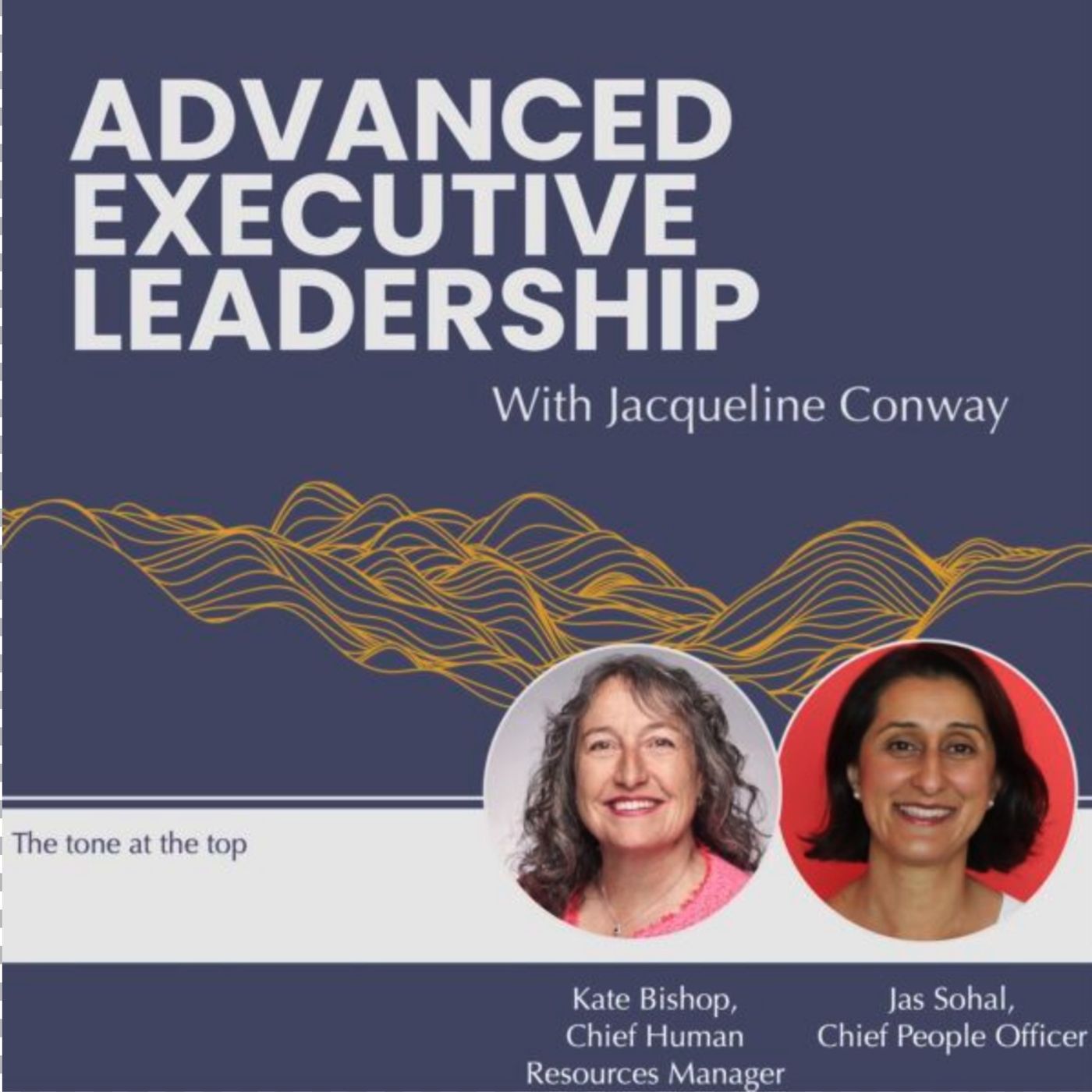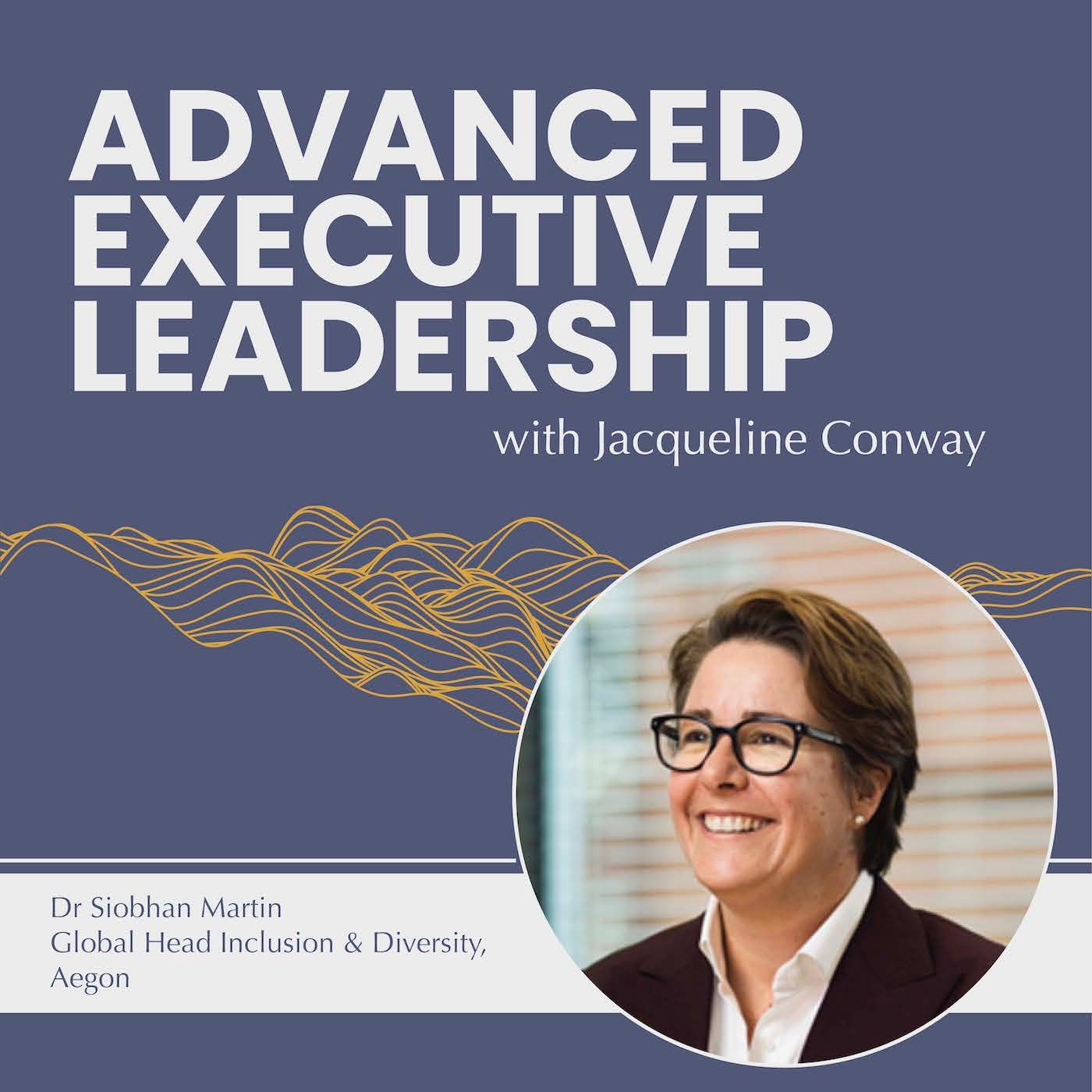Discover Advanced Executive Leadership
Advanced Executive Leadership

Advanced Executive Leadership
Author: Jacqueline Conway
Subscribed: 2Played: 60Subscribe
Share
© Copyright Jacqueline Conway
Description
What’s required from Executive Leaders has changed. Find out how executive leaders and executive teams can survive and thrive in our disrupted world. Interviews with CEOs and insights from Waldencroft’s Dr Jacqueline Conway. Waldencroft is a consulting practice dedicated to helping executive leaders anticipate, navigate and lead. Find us at https://waldencroft.com/
53 Episodes
Reverse
Sarah joined TalkTalk in 2019 and has over 20 years experience in HR leadership, having previously worked for companies such as Centrica and Wheelabrator.Currently supporting TalkTalk through a demerger and period of significant change, Sarah is passionate about culture, belonging and employee experience.Sarah is married and a mum to two boys and counteracts her busy role with a variety of exercise such as running, personal training sessions, boxing & yoga. She also enjoys spending time with friends and socialising.At TalkTalk they use ‘100% human’ to describe themselves and Sarah describes herself as: 40% mum & wife, 20% runner, 20% friend, 20% ‘socialiser’ = 100% human. If you’d like to find out more about Waldencroft and speak to us about how we might work with your executive team, you can reach out to us here: https://waldencroft.com/contact/ And if you’d like to receive my weekly newsletter where I share not only the podcast news, but what’s concerning executive leaders and those who have responsibility for developing them, you can sign up here: https://waldencroft.com/newsletter/
Innovation in app the development the space is vital as consumers crave new and useful technologies. So, the ability to deliver differentiated and flexible customer experiences is a highly competitive market. On today’s podcast I’ve delighted to be joined by Natalie Sheils who shares her story of Mosaic Group who build and acquire best-in-class app brands. To do this, they are dedicated to creating the conditions for innovation to occur day in, day out.We recorded this episode earlier this year, and at the time Natalie was Chief People Officer of Mosaic Group (NASDAQ: IAC). She's now Founder and CEO of Talenaut, revolutionising talent acquisition and intelligence through innovative technologies like AI and machine learning.She empowers organisations to embrace innovation and build a digitally ready workforce and dynamic human resources and capabilities infrastructure. She emphasises the crucial role of leadership and HR in harnessing technologies, fostering a culture of change agility and innovation, and proactively adapting strategies.As a thought leader, Natalie shares her insights on the intersection of technology, data, operating models and leadership. She empowers leaders to embrace continuous learning, cultivate the critical skills for success in this new era, and adopt a forward-thinking mindset to successfully navigate the challenges and opportunities of a future of work and industry that is being shaped by and radically optimised by AI and other advanced technologies.If you'd like to access some of Natalie's thought leadership in this space, you can find a selection of articles below: https://www.cipd.org/uk/views-and-insights/thought-leadership/insight/optimising-operating-models/ https://www.peoplemanagement.co.uk/article/1822133/part-one-makes-future-ready-hr-professional https://www.peoplemanagement.co.uk/article/1828663/part-two-future-ready-hr-professionals-role-driving-innovation https://www.peoplemanagement.co.uk/article/1834539/part-three-nine-skills-future-ready-hr-leaders-harness-organisational-agility https://www.peoplemanagement.co.uk/article/1845987/part-four-11-critical-areas-hr-focus-prepare-workforce-digital-future
In today’s episode of the podcast, I’m joined by Pete Hamill, consultant and author of Embodied Leadership: The somatic approach to developing your leadership. We explore how we can develop a sense of embodiment and how it can help you as a leader become more effective. Pete Hamill is a consultant, facilitator, and coach with an international background in leadership, organisational development, and personal development, including the role that conflict plays in organisations and society. He is an expert in embodied leadership development in which he has completed a PhD, and is the author of Embodied Leadership: The somatic approach to developing your leadership.
In today's episode we explore the importance of Allying in Inclusion and how one professional has made it work in a large retail group.Chami Dhillon has pursued her lifelong passion for unlocking potential through better opportunities for marginalised groups across roles in Pharmaceuticals, Manufacturing, Financial Servies and Retail industries.Working on diversity and inclusion initiatives for over a decade across various HR roles, she has designed award winning outreach programmes, worked overseas to improve access to opportunities for disadvantaged youth and mentored social enterprises focused on widening participation. She established Kingfisher’s first Inclusion & Diversity Centre of Excellence in 2021, where she has gone on to launch a successful inclusion accelerator, set up 17 ERGs across the 82,000 strong international workforce and be named a Role Model for Inclusion in Retail by Diversity in Retail.
Three things are true in diversity and inclusion.The first is that it makes both good business sense – diverse teams are more effective. Second, it's the right thing to do – people should have a place in organisations based on their capabilities.And thirdly, and perhaps more controversially, that working with more diverse groups of people is harder. There is a cognitive cost in working with people who are less like us.That’s what my guest, Stephen Frost and I explore in today’s episode of the podcast.Stephen is a globally recognised diversity, inclusion and leadership expert, and founded Included in 2012. He leads the team and works with leaders around the world to embed inclusive leadership in their decision-making.From 2007-2012 Stephen designed, led and implemented the inclusion programmes for the London Olympic and Paralympic Games as Head of D&I for the London Organising Committee. From 2004-2007 Stephen established and led the workplace team at Stonewall.Stephen has also led D&I at KPMG and worked in advertising and consulting. Stephen was a Hertford College Scholar at Oxford and a Fulbright Scholar at Harvard. He remains a Visiting Fellow of the Women and Public Policy Program.He has won various awards from the 2010 Peter Robertson Award for Equality and Diversity Champions and 2011 Young Global Leader by the World Economic Forum to one of Management Today’s Change Agents for his race and gender work and 2022 Winds of Change Awards from The Forum on Workplace Inclusion.He has taught Inclusive Leadership at Harvard Business School, Singapore Management University and Sciences Po in France and advised the British Government, Royal Air Force and the White House.He is author of The Inclusion Imperative (2014), Inclusive Talent Management (2016) and Building an Inclusive organisation The Key to Inclusion (July 2022).
Andrew Curry is Director of Futures at SOIF, where he leads SOIF’s Advisory practice, advises on futures methods and techniques, and contributes as faculty to SOIF’s learning and training.He has been a futurist for more than 20 years, working with clients on a wide range of projects across the public sector, the non-profit sector, and the private sector, and he continues to do this for SOIF. He has also published widely on futures.He was the lead author of the Henley Centre’s 2001 report for the Cabinet Office, Understanding Best Practice in Strategic Futures. He wrote – with Anthony Hodgson – the first academic paper on the Three Horizons method and a paper on comparative scenarios methods, with Wendy Schultz. He blogs on futures at a personal blog, 'The Next Wave', and also runs a regular futures-oriented newsletter at Substack, Just Two Things. He can be reached via SOIF. Here are some of Andrew’s resources for you to download. A report he wrote on the 21st Century Business - still his most downloaded Futures Company report on ResearchGate. https://www.researchgate.net/publication/277307309_The_21st_Century_Business We talked about "future anxiety". Since we did the podcast interview, Andrew and his colleague Emma Bennett have written a short article about this which is relevant. This also has a short explainer about the 'futures diamond' he talked about. https://soif.org.uk/app/uploads/2024/01/Beyond-uncertainty-finding-our-way-to-the-future.pdf Andrew also talked about tools like futures wheels and three horizons. He wrote a toolkit for Wales Community and Voluntary Action that helped community organisations use these to get to a preferred future and this is the facilitation guide for this. https://wcva.cymru/wp-content/uploads/2021/03/BUILDING-BETTER-FUTURES-Toolkit.pdf Finally, for a more general introduction to futures, there is his Five Books interview from 2017: https://fivebooks.com/best-books/andrew-curry-futures/
We know complexity is a big topic in leadership right now. Today’s podcast explores what it means to effectively develop leaders for this, and in particular the role of business schools.I’m joined by Robert MacIntosh, who is a Professor of Strategic Management and Pro Vice Chancellor for Business and Law at Northumbria University.His research focuses on strategy and change with senior leadership teams and has involved strategy development and execution with over 100 organisations. He also has significant boardroom experience as a chair and trustee. He is a Fellow of the Institution for Engineering and Technology, the Academy of Social Sciences, and the British Academy of Management.He chaired the social care charity, Turning Point Scotland (2019-2021) and currently chairs the Chartered Association of Business Schools as well as sitting on the board of Revenue Scotland, the devolved tax authority of the Scottish Government.The second edition of his book Strategic Management: Strategists at Work was published in 2023 and he is currently co-leading a major UK research project on EDI in research and innovation settings.He describes his status as a shareholder of Aberdeen Football Club as a case study in optimism.___If you’d like to find out more about how to develop Enterprise Leadership in your Executive Team, or to find out more about the work that we’re doing with executive teams more generally, you can reach out here: https://waldencroft.com/contact/ Or sign up for the newsletter here: https://waldencroft.com/newsletter/
I’m joined by Rick Lee, Chief People Officer at Willmott Dixon to talk about the case for decency in the leadership.Rick and his team are focused on attracting, retaining, developing, and promoting the best people and ensuring that they enjoy the career of a lifetime at Willmott Dixon. He is passionate about diversity and is a member of the Government’s Women’s Business Council. He was awarded an OBE in 2021 for services to business and equality.Willmott Dixon is a privately-owned contracting and interior fit-out group, that values collaboration, sustainability and people. Founded in 1852, Willmott Dixon is dedicated to leaving a positive legacy in our communities and environment. Willmott Dixon is accredited with Investors in People – Platinum, and, in 2022, was named the best big company to work for in the UK by Best Companies.____If you’d like to find out more about how to develop Enterprise Leadership in your Executive Team, or to find out more about the work that we’re doing with executive teams more generally, you can reach out here: https://waldencroft.com/contact/ Or sign up for the newsletter here: https://waldencroft.com/newsletter/
In this episode of the podcast I speak with Uzair Qadeer, the Chief People Officer of the BBC about Enterprise Leadership and how this works in an organisation that not only makes the news, but often is the news. We talk about the work he has been doing with the BBC Executive Committee to develop and enhance their Enterprise Leadership and how he is driving the BBC’s people strategy, cultural transformation and organisational change. If you’d like to find out more about how to develop Enterprise Leadership in your Executive Team, or to find out more about the work that we’re doing with executive teams more generally, you can reach out here: https://waldencroft.com/contact/ Or sign up for the newsletter here: https://waldencroft.com/newsletter/ Here’s some more information about Uzair. Uzair joined the BBC as Chief People Officer in February 2023. He oversees the full spectrum of global human resources capabilities across the BBC Group and is responsible for driving the BBC’s short- and long-term employee experience, cultural transformation, and organisational change through the people agenda. Prior to joining the BBC, Uzair worked in a range of senior executive positions. He was previously Chief People Officer at Carbon Health, a US healthcare provider, where he built and oversaw a first-class HR function to lead the company through a dynamic period of transformation. Prior to joining Carbon Health, Uzair was with Alexion Pharmaceuticals where, as Alexion’s first Chief Diversity Officer and member of the company’s executive committee, he built a global function that elevated employee engagement, created an inclusive environment, and drove innovation for customers through a sophisticated use of diversity and inclusion insights. He has held numerous additional leadership roles, including in Deloitte’s Human Capital Consulting practice where he advised clients across various industries and geographies on a variety of human resources topics, and at Bristol Myers Squibb Company where he worked in various roles of increasing responsibilities both in the U.S. and in Italy. Uzair has been a featured public speaker and thought leader on the topics of employee experience, inclusion, and the future of human resources. He received his Master’s degree and Bachelor of Arts and Bachelor of Science degrees from Pennsylvania State University.
This episode explores Ethical Leadership and what it is to run a commerically successful busienss that has social value at its heart.Aidan McQuade is a writer and independent human rights consultant. He was director of Anti-Slavery International from 2006 to 2017. Prior to that he worked extensively in development and humanitarian operations, including from 1996 to 2001 leading Oxfam GB’s emergency responses to the brutal civil war in Angola. He holds a PhD from the University of Strathclyde, and is a recognised expert on forced labour and trafficking on which he regularly advises businesses, international and non-governmental organisations. He is the author of three books: Ethical Leadership: moral decision-making under pressure, and two novels: The Undiscovered Country, and Some Service to the State.Aidan's publisher, De Gruyter, have kindly offered our listeners a 30% discount on his book, Ethical Leadership. Here's the link and at checkout add the podcast code AEL. Enjoy! https://www.degruyter.com/document/doi/10.1515/9783110745849/html?lang=en Nicola Parkinson is the Group Head of People at Eric Wright Group, and has previously worked in a variety of purpose driven businesses in the Housing, Childcare, FMCG and Education sectors. Nicola has diverse and extensive experience in Leadership, Organisational Development, Employee Engagement, and Human Resources spanning over two decades. With a passion for working with ethical organisations who have a real social purpose Nicola’s aim is to make the world of work a better place for future generations. Nicola is a Charted Fellow of the CIPD, has a Master of Science (MS) degree in Human Resources Management from Edinburgh Napier University and is an Executive Coach.
“The Post Office scandal has exposed Britain as a hotbed of cronyism and corruption”. In this episode, I explore the Post Office scandal in the UK and the lessons that leaders can learn from this abysmal example of executive leadership.
Welcome to Season #2 of the Advanced Executive Leadership podcast. Connect with the host, Dr Jacqueline Conway, on LinkedIn for updates, and reminders… and a sneak preview of what’s to come this season. You can find Jacqueline here. Or if you're interested in the work that Jacqueline and the team at Waldencroft does, you can can find out more at waldencroft.com
It’s widely accepted that in a successful executive team, the members must feel comfortable being vulnerable enough to admit mistakes, ask for help, share tasks and work together effectively. And when this trust is absent, it leads to negative team politics, protectionism, and friction.These issues not only make the work environment unpleasant — they can also prevent productive work from getting done. If you’ve ever been in a team with low levels of trust - and who hasn’t - then you know it’s a pretty miserable place to be. But developing trust is done in some counter-intuitive ways. That’s what I explore in this week’s podcast.
Imagine being a CEO or senior leader and having the opportunity to step out of the business for 4 months to travel and recuperate. That's exactly what Matthieu Hue, CEO of EDF Renewables is currently doing. But just before he left, Matthieu took the time to sit down with me to talk to me for the latest edition of the podcast. In it, Matthieu explains what it's been like creating an exceptional executive team that are up for the challenge of rapidly growing the business in a world that has finally realised that renewable energy is the way forward. If you are in a high growth industry, this episode is not to be missed!
There's disruption and turbulence facing many companies and industries. But that disruption is probably most acute in the real estate sector. The dual challenge of the impact of online shopping on our high streets alongside what hybrid working means for office space in town and cities means that as an industry, it’s grappling with deep uncertainty. So I’m thrilled to be able to welcome Mark Allan onto the podcast. Mark is the CEO of Landsec plc a FTSE 100 real estate business that’s getting ahead of the curve on the disruption. Tune in to find out what it means for Mark and his Executive Team as they lead in an age of disruption.
There are two habits of mind that stops us from fully embracing the future and seeing what might be around the corner.What are they? The Tyranny of Short-Termism and a Poverty of Imagination.They prevent us in developing our anticipatory skills and engaging in strategic foresight. Being Futures Fluent isn't just about being agile and responsive to a future that hasn't yet emerged. It's also about shaping that future - in whatever way we can - so we help to bring the world we want to see into being.
Perspective-taking breaks a golden rule: to treat others as we’d like to be treated and turns it on its head… to treat others as they’d like to be treated. I wonder the impact on leadership if we were to do this more?
The capacity to be able to take multiple perspectives is the very definition of adult development. This episode explores what it means to take multiple perspectives, and why it might be useful for executive leaders.
We've had quite the run on stories that relate to the ethics of leadership and the tone that leaders set.Take Bernard Looney, who resigned as CEO of BP after failing to disclose to the Board the extent of his pervious relationships with colleagues.Or the hedge fund owner, Crispin Odey, who is being investigated by the Financial Conduct Authority to determine if he is a ‘fit and proper person’ after allegations that he sexually assaulted a junior member of staff.But it's not just these obvious and extreme breaches that we need to consider. In today’s podcast, two Chief People Officers explain the importance of leaders setting the right tone.Kate Bishop, the CPO of IFS says: “It’s the tone at the top that sets the tone around the entire organisation. It’s what makes people want to join and people want to stay”.
What is it about some organisations that can be going strong after literally hundreds of years?What is it about these companies that they can maintain what it is that gives them such staying power, yet they can balance this with the renewal that it takes to keep them relevant in a world that keeps changing?My guest on today’s edition of the podcast is Siobhan Martin, the Global Head of Inclusion & Diversity for Aegon, a multinational financial services institution that's been in existence for 175 years.In addition to drawing on her corporate experience Siobhan reflects on her role as a board member of All Hollows, one of the oldest churches in the City of London that's been around since the year 675!We explore this stability / renewal issue as it relates to the subject of improving diversity, equity and inclusion. And the role that executive leaders have in making it happen.


